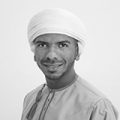
As more and more people migrate and settle in densely populated urban centers it is important that cities tackle the issues of how people get around in a safe, convenient, and affordable way. By 2050 67% of the world’s population is predicted to live in cities.
Just buying a car is no longer the status quo.
The aim is to promote within government Institutions as well as private entities a culture of innovative solutions of transport and its components, in order to be flexible and adaptable to the change, to the internal/external conditions, to the materials, and market digitization.
Shifting from macro scale to micro scale the research agenda 2018 wants to address a deep investigation and exploration of morphology formation for the proposition of bus/pods/drone stop that reflect terminal hub design proposals. A sophisticated shelter that reacts to the external stimuli and could assume different configuration in according to it.
The GSS Muscat will focus in the development of a technological piece of architecture that provide web access, tools for planning the best route, instant connection with terminal hub, airport, port and many more.
The GSS Muscat will critically reconstruct the theory and application of urban emergent technologies in relation to the built environment to provide a theoretical framework for the processes undertaken during the summer school. The main goal is to understand the relationship between space, tectonic, material and the post digital paradigm in the digitize world of the chosen site.
What is the vision, needs, and social meaning of stop in a more complex and density society?
A design approach will take in account a new configuration of bottom-up and self-organizing design strategies, tools and techniques, being a multi-disciplinary study and its proposition that form follows flow, in order to implement a dynamic and mutable contemporary structures. In particular we look in the implementation of its exoskeleton and its performative skin optimized by simulation.
The research agenda is real links between bytes and touchable objects supporting and encouraging the new generation of GCC professionals to challenge conventional ideas and pushing their boundaries within a sustainable/renewable technology proposals. With that scope the teams are exposing to investigate cutting-edges ideas to boost the solar energy sector experimenting the thermal and photovoltaic solar energy by the proposition of innovative and smart materials.
During the second phase of fabrication the participants will be assist by expert in the field to understand fabrication methods, materials, assembly techniques and their applications, in order to produce a 1:1 scale prototype.
IAAC Global Summer School is a full-time two weeks course, 2-14 July 2018, that provides both practical and theoretical knowledge. The program is led by expert tutors, combined with lectures by renowned professionals and academics relevant to the topics to be treated during the course. These will be broadcasted in the different node-cities, all globally connected. Participants will join a global agenda and an international laboratory at their disposal to test their design hypothesis, understanding how design conclusions derived locally can be tested and evolved globally in the different cities where other teams reside.

Founder and Design Principal of Spatialconnection(s), an international architectural and design firm, located in Italy and in the Gulf region.
He completed his master degree in Architectural Engineering at University of Pisa (Italy).
Before founding Spatialconnection(s) he has practiced in award-winning international offices in Italy, China, and The Netherlands where he has worked as Design Architect on several high profile projects. Dario has vast expertise in computation/scripting as well as in the optimization of complex geometries. He combines practice and teaching and he started to pursue his line of research at INARCH (National Institute of Architecture) in Rome for the Master Emerging Technologies where was the visiting professor of Scripting and Computational Geometry. He has taught in several courses and workshops both in national and international institutions.
Since 2017 Dario is Programme co-Director of IaaC GSS Muscat.

PhD candidate at the Politecnico di Milano with several years of experience in education, research and private practice in the Sultanate of Oman. His research is based on optimization techniques for building performance.
He is a graduate of Penn State University (2010) with a Bachelors of Architectural Engineering with a focus in structures. After a few years of experience, he then obtained a Master’s of Science in Architectural Engineering from the University of Sheffield (2013) where he specialized in thermal comfort and natural ventilation. Upon returning to Oman, he started his teaching career at the Higher College of Technology. Samir then went on to become the Head of Section of Civil and Architectural Engineering and later became the Head of the Engineering Department where he was actively teaching and was a frequent jury panel member for other architectural institutes in Oman.
Samir is Associate Architect of Azri Architects, and he has been designing and managing various high-end projects of different types in the whole Sultanate.
Since 2017 Samir is Programme co-Director of IaaC GSS Muscat.

He is coming from an Interior Design background from the American University of Sharjah with an interest in Architecture and Computation design. He joined IAAC to do masters in Urban Science – Intelligent Cities and graduated with project distinction. Afterwards, He has done a Robotic Fabrication “OTF” postgraduate research in 3D printing Performative Architecture and got published on a lot of websites. He found his interest in electronics and programming and decided to do the MIT Fab Academy in Fab Lab BCN and his project was about swarms behaviour and self-organizing mini robots.
He has assisted several seminars at IAAC in structure analysis, lightweight structures and robotic fabrication and have mentored IAAC teams at Fab Fest London ’17. He had done a research on structure optimization on mud shell structures using robotic fabrication techniques for ASCAAD ’17 and got shortlisted to the final phase.
He is currently in Dubai working on different projects and different scales and tutor at IAAC GSS Muscat.

Fatima Received her Bachelor’s Degree in Interior Architecture from King Faisal University in Saudi Arabia. She was awarded Prince Mohammad bin Fahad Al Saud Award for Academic Excellence in 2010. She then continued to earn her Master’s Degree in Architecture, and Master’s of Science in Engineering Integrated Product Design from the University of Pennsylvania in 2015. During her graduate school, in 2013, Fatima was a second-place winner of E. Lewis Dales Fellowship competition.
Fatima has been working as a lecturer at the College of Design, IAU- Imam Abdulrahman Bin Faisal University in Saudi Arabia.
S&T// Coral Building, Al Khuwair – Muscat (design phase)
Innovation Factory R&D// Knowledge Oasis Muscat, Athiba – Muscat (fabrication phase)
IAAC GSS is open to creative and innovative people who are interested in fields such as architecture, urban planning, digital fabrication, design, etc., searching for a multidisciplinary experience in an international environment. No previous skills are required, although CAD design, programming and digital fabrication skills are welcome. The official language of the course is English, but assistance will be given in Arabic language.
After the course, the participants will have gained theoretical and applicative knowledge about advanced design strategies. They will be familiar with parametric software, data visualization and use of digital machines. The last day of course participants will join a presentation of developed projects reviewed by a renown jury and will receive a Global Summer School Diploma.
Each participant is responsible to investigate which documents are required via the embassies in their country of origin. The school will provide a confirmation letter regarding the participation to the course, and will assist where possible the visa process.
Fee for Muscat is 500 OMR and includes all material costs needed for the course. No additional registration fee is required. Flight tickets, accommodation and food are not included in the fee. Each participant should bring his/her own computer with the software installed. Further details about the software will be given to the participants upon acceptance.
Only 25 limited seats available to be part of GSS Muscat.
In order to register to the Global Summer School, participants need to submit the online application form, where they will be asked to fill their personal details and to upload a CV. Portfolio is not required. GSS18 dates are from 2-14 of July 2018 and applications are open until the 27th of June 2018.

